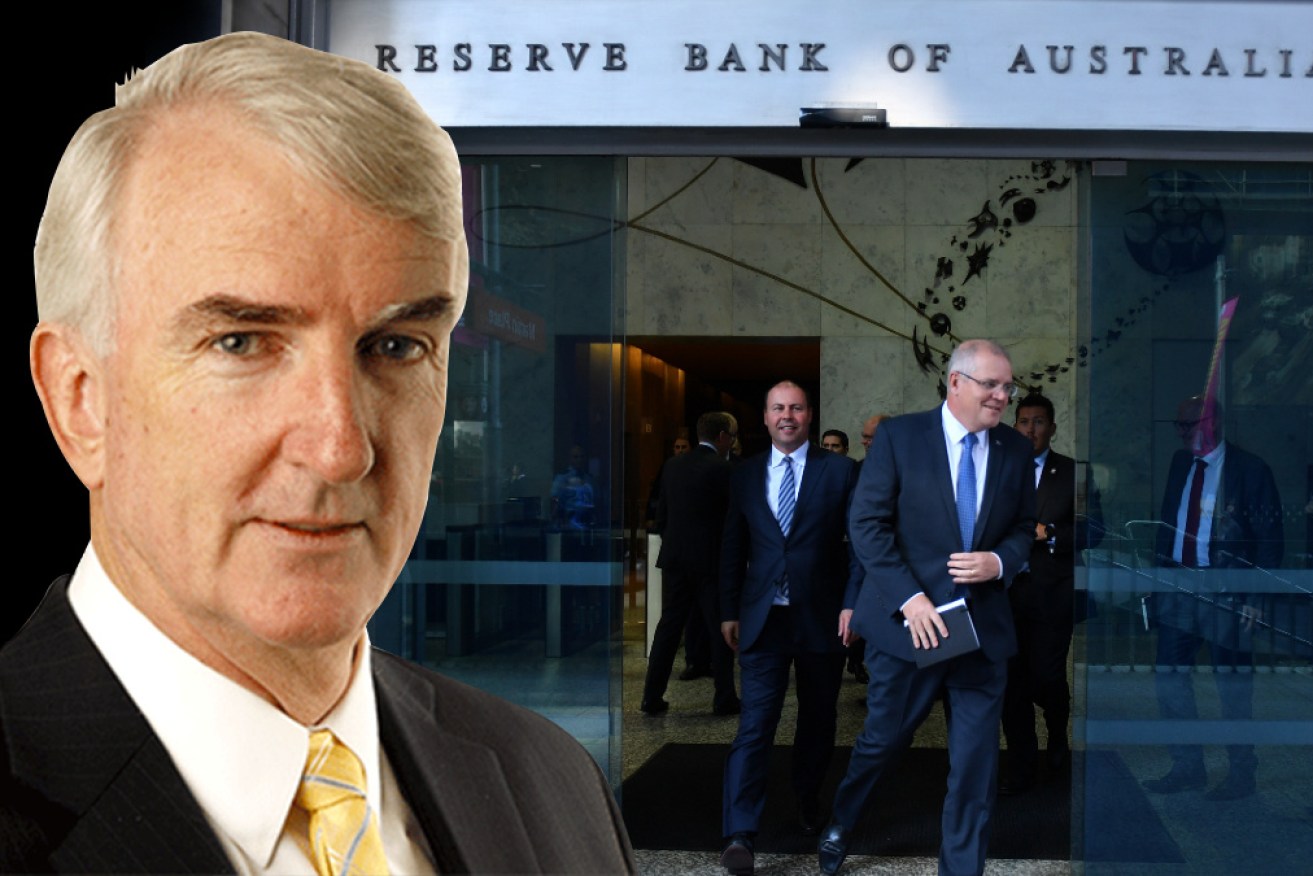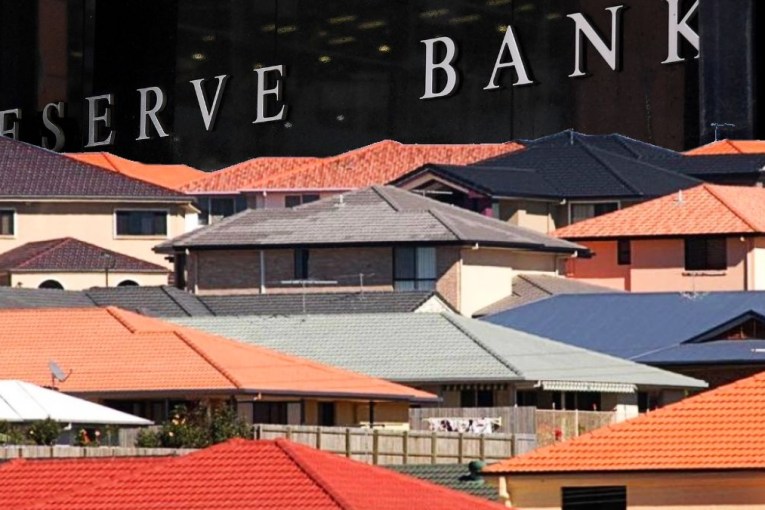Michael Pascoe: Would you trust these politicians with our payments system?


“The corporatisation of economic policy” could affect the independent Payments System Board if the Coalition is re-elected. Photo: TND/ AAP
If you give politicians new leverage over policies with major impact on companies’ profitability, what do you think happens?
For a start, the rent seekers come calling – and the track record of recent decades says those who seek shall indeed find.
With their lobbyists, donations, industry lunches and fundraising dinners, their conferences, photo opportunities, employment prospects post-politics, general duchessing and all the grease that helps wheels turn, the rent seekers have no trouble transmitting their desires to the pollies.
And it comes served with any number of arguments for said desires being desirable for all. Add lashings of neoliberal sauce for neoliberal politicians and – surprise, surprise – it tends to go down a treat.
It’s what Bernard Keane book,The Mess We’re In, described as “the corporatisation of economic policy”. It’s been hiding in plain sight this week.

Treasurer Josh Frydenberg didn’t announce any reforms. Photo: AAP
It is the subtext everyone seems to have missed in the telegraphing of Liberal Party desires to take control of Australia’s payments system away from an independent board and house it somewhere that is not independent – in the Treasurer and Treasury.
(No, Virginia, Treasury certainly isn’t independent, as can be seen in the budget papers and Intergenerational Reports it publishes and in keeping with the Morrison government’s dictate that the public servants’ job is to do what the government tells them to do.)
Treasurer Josh Frydenberg’s Wednesday speech may have seemed innocuous enough.
While he claimed “the comprehensive payments and crypto reforms I am announcing today will firmly place Australia among a handful of lead countries in the world”, he didn’t announce any reforms.

Shadow Treasurer Dr Jim Chalmers. Photo: AAP
As Shadow Treasurer Jim Chalmers summarised it: “Nothing Josh Frydenberg says today will happen before the election. This is just a commitment to consult on the government’s last consultation.”
An announcement about an announcement – we’ve become used to those.
Mr Frydenberg did indicate some intent though about the announcements he intends to announce if the Coalition is returned to government.
There was an intent to belatedly do a little cleaning up around the edges of the totally unregulated crypto casino and he went a bit further in the Australian Financial Review by indicating possible agreement with the Reserve Bank’s eventual decision to do the right thing on competitive neutrality – merchants should be allowed to apply a surcharge to recover the high fees charged by Afterpay and its buy now, pay later (BNPL) imitators.
(It was bemusing that the AFR’s front page headline was “Afterpay fees to hit consumers” – apparently oblivious to BNPL fees currently hitting consumers whether they use that form of credit or not.
“Customers of Afterpay and Zip may be forced to pay buy now, pay later fees now borne by shopkeepers under plans for more intensive regulation of the fast-growing sector,” the paper reported, ignoring what shopkeepers tend to do with costs.)

BNPL is booming in popularity, but its customers may soon be hit with extra costs.
Of more interest was the intent between the lines – the push to have Treasury (and, therefore, politicians) muscle in on what has been primarily RBA territory through the independent Payments System Board.
Mr Frydenberg commissioned a Treasury-supported report last year by Sydney lawyer Scott Farrell.
The report recommends much bigger roles for the Treasurer and Treasury.
The government has accepted the report’s recommendations to, among other things: Give the Treasurer “designation power” to direct payments regulators rather than extend RBA powers that were perceived as inadequate; have the Treasurer “lead payment system oversight”; and enhance Treasury’s payment policy function with increased resources to build a specialist payments capability.
What’s at stake behind those arcane phrases? Many, many billions of dollars in profits and dividends and, therefore, influence.
For example, Afterpay which has skated through and around regulatory loopholes to end up receiving a $39 billion takeover offer. In the process, it became both a stockmarket and political darling.
Mr Frydenberg also accepted recommendations from a select committee inquiry chaired by Liberal senator, fintech fan, industry superannuation critic and would-be ABC inquisitor, Andrew Bragg. One was to have Treasury lead policy review for a retail central bank digital currency.
On Wednesday, Mr Frydenberg said Australia may adopt a central bank digital currency.
The Treasurer seemed more enthusiastic about that than the Reserve Bank governor.

RBA governor Philip Lowe is yet to be convinced.
“To date, though, we have not seen a strong public policy case to move in this direction, especially given Australia’s efficient, fast and convenient electronic payments system.”
The RBA also is researching a wholesale-level CBDC in partnership with the Bank of International Settlements and three other central banks. No central bank is rushing in.
Dr Lowe repeated warnings about gambling in the crypto casino, though he didn’t use those words. (It’s a mystery to me why anyone not selling snake oil would talk about “investing” in crypto when the correct word is “speculating”.)
Little sign of reticence by Senator Bragg in his fulsome praise of the Treasurer and crypto, promising Australia will be “a world-leading crypto hub” under the Treasurer’s plan.
“The Treasurer Josh Frydenberg has put Australia on the tech map,” he enthused.
“The world is watching Australia which is now setting the global standard for crypto, payments and digital wallet reform.”
Um, no, the world is not – Australia is consulting about consultations. But the important intent was in this:
“The Australian government, not Silicon Valley, or Shenzhen or the RBA should run Australia’s payments policy. Now we are back in control of payments policy.”
Therein the neoliberal view of our independent central bank.
The politicians want their power back and Treasury, like any bureaucracy, innately wants to empire build.
A venerable policy adviser of the 1960s and ’70s used to say the pattern of finance – and therefore profits – was determined by tax and regulation.
No wonder governments want a role. Regulation is rarely innocent.








